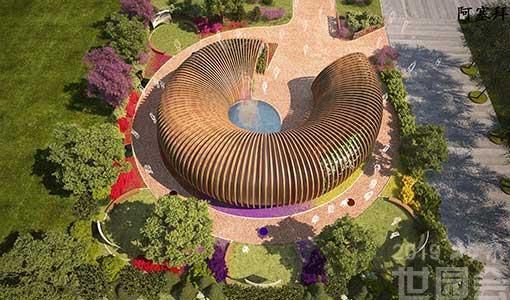Observers Hail Xi's Speech on Civilizations

[Photo/horti-expo2019.com]
In a world with cultural tensions, this is a vital message, expert says
President Xi Jinping said in a speech at the Conference on Dialogue of Asian Civilizations in Beijing on Wednesday that countries should treat each other as equals to ensure the peaceful coexistence of civilizations and jointly build a community with a shared future for Asia and all of humanity.
Colin Mackerras, an emeritus professor at Australia's Griffith University, said, "I appreciate the idea Xi proposed that all civilizations are equal." Mackerras added that he agreed with the idea that civilizations should be open to one another and learn from one another, which he said is the key to development.
Stephen Perry, chairman of the United Kingdom's 48 Group Club, said Xi's speech reconfirmed the purpose of building a community of a shared future for mankind.
"It is a concept that is starting at home, in Asia, with the continent being asked to be the first step in building a global commitment to working in a spirit of collegiality for sustainable Asian economic development and global economic development. The speech calls for a recognition that differences are fine and the collection of cultures, histories and societies forms a wonderful rainbow," Perry said.
Xi raised a four-point proposal to consolidate the "cultural foundation" of jointly building a community with a shared future for Asia and humanity: treating each other with respect and as equals; appreciating the beauty of all civilizations; adhering to openness, inclusiveness and mutual learning; and keeping pace with the times.
Referring to the four ideas, Kanti Bajpai, director of Centre on Asia and Globalisation at the Lee Kuan Yew School of Public Policy, National University of Singapore, said the key themes are the necessity of openness, inclusivity, equality and respect as these are not only vital for prosperity and development, but also for peace and stability.
"Xi made the important point that culture is as important as the economy and technology for mankind," Bajpai said, adding that "the most impressive part of his speech was the insistence that all civilizations have contributed to human progress and that openness and diversity promote learning and development.
In a world where there are cultural tensions and calls for putting up walls, this is a vital message," Bajpai said.
The conference comes at a time when some countries have resorted to the "clash of civilizations" argument as well as turning to bullying, unilateralism and an inward-looking mentality.
Shada Islam, director of Europe and Geopolitics at Friends of Europe, a think tank in Brussels, also said that the world is now facing many challenges, including climate change, pollution and the breaking of multilateral rules.
Countries should now stand together and choose collaboration rather than taking sides against one another, she said.
Hirotake Ran, an East Asia studies professor at Musashino University in Tokyo, said the Xi-proposed conference is highly relevant in the current political environment.
"Protectionism is back in history again. In this context, Xi's call for dialogue among civilizations is of epoch-making significance. It is also a wise response to the current international political situation," Ran said.
Alan Barrell, a professor at the Cambridge Innovation Academy, said Xi's speech is comprehensive in that it embraces many key areas of challenge that face not only Asia but the entire world.
"I feel it is very important that China takes the lead in enabling Asian development to be integrated more effectively so as to optimize the human efforts being invested in the future.
"The initiatives that may lead to peace, harmony and prosperity on the global stage can only be applauded," Barrell said.
Kevin Hobgood-Brown, managing director of the nonprofit Foundation for Australian Studies in China, said cultural ties are critical to maintaining long-term relations between countries.
"When societies are closed and inward-looking, they struggle to develop. When they are open and interactive with other societies and cultures, they develop and evolve. The dynamic development of Asia has been a good example of this phenomenon," Hobgood-Brown said.
Asia, with around two-thirds of the world's population, is a major birthplace of civilization and home to vibrant cultures. There are 47 countries and more than 1,000 ethnic groups on the continent.
Asians expect a peaceful, stable, open and integrated continent with common prosperity, Xi said.
Chen Weihua in Brussels, Wang Xu in Tokyo, Liu Hongjie in Nairobi and Liu Yinmeng in Los Angeles contributed to this story.
